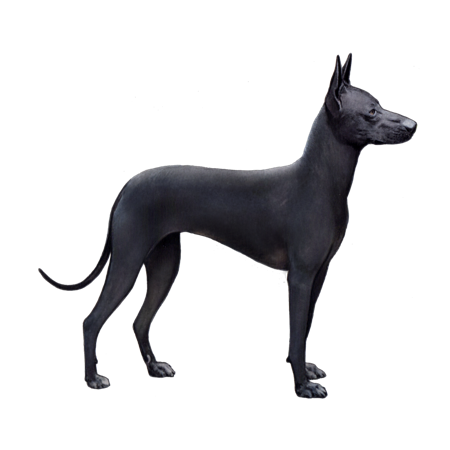
Welsh Terrier
Intelligent, alert, energetic, and usually friendly, the Welsh Terrier is a happy and good-natured breed. Welsh Terriers are brave and very protective—especially against other dogs—of their families and territory. Curious and full of character, they make wonderful pets.
Interested in discovering if your dog is a Welsh Terrier?
Check out Wisdom Panel's DNA tests.

Welsh Terrier Traits
General Appearance
Strong and hardy, Welsh Terriers look a lot like Airedale Terriers and are often mistaken for them.
Coat and Coloring
The Welsh Terrier's wiry coat is tan and either black or various shades. The shading is due to grizzle, or black hairs among the rest of the coat. The Welsh Terrier's coat often has a black jacket pattern.
Distinctive Physical Traits
An elongated head with folded ears and a cheerful beard are the outstanding features of the Welsh Terrier.
Welsh Terrier Temperament
True to its terrier roots, the Welsh Terrier is an alert and spirited breed. Even though these dogs tend to be on the calmer side (at least as far as terriers go), they're best suited for homes with older children. Welsh Terriers are curious, full of fun, and enjoy typical dog activities such as playing and—unfortunately—digging.
Welsh Terriers are relatively adaptable and eager to take on whatever lifestyle their people ask of them. Though they'd prefer country living, they're just as content in a city apartment (they're not excessive barkers) or suburban family home.
Welsh Terriers may be timid around strangers. They're also known to chase smaller pets and can be difficult to distract once they're engaged in an activity.


Welsh Terrier History
Some say the Welsh Terrier is the oldest purebred terrier in existence, though this claim is unconfirmed. Many experts believe the Welsh Terrier originated in 19th-century Wales—where residents of Carmarthenshire produced purebred Terriers meant to hunt foxes and badgers.
Shown in England for the first time in 1884, these dogs were known as "Old English Terriers" and "Black-and-Tan Wirehaired Terriers." In 1888, Prescott Lawrence brought the breed to the United States. The American Kennel Club recognized it in the same year under the current name of Welsh Terrier.
Welsh Terrier Care
Nutrition
The Welsh Terrier requires a high-quality dog food that is age-appropriate. As you should with any dog, it's important to monitor the amount of food you feed your Welsh Terrier and reduce the portions if your pup gains weight. Also, remember that giving too many treats in addition to regular meals can contribute to obesity.
Grooming
Welsh Terriers don't shed, so plucking the hair by hand (i.e., hand stripping) is an ideal way to keep their coats in top shape. Their coats also need to be brushed a couple of times a week and clipped every 8–12 weeks. Bathing between clippings is generally not necessary. But you should include weekly nail trims as part of the grooming routine.
Exercise
The Welsh Terrier is a highly energetic dog that enjoys activities with their people. Favorite ways to burn energy include daily brisk walks and backyard games—such as fetch, ball chasing, and frisbee catching. And if they can get in two walks per day, all the better. Welsh Terriers also enjoy earthdog trials, agility, tracking, flyball, and obedience. They even love to swim.
Training
Welsh Terriers are intelligent and alert dogs that are fun to teach. But, they can be stubborn and lose interest if training sessions are too repetitive. So, aim to provide consistent but varied training exercises.
All dogs benefit from early socialization, as it helps them be more comfortable around strangers and other animals.

Welsh Terrier Genetic Health Conditions
-
Primary Lens Luxation
Primary Lens Luxation (PLL) is a condition that can cause the lens of the eye to become loose and eventually displace. The disorder is caused by degeneration of the fibers that hold the lens in place.
Knowing if your Welsh Terrier is a carrier or at-risk for these conditions can help you and your veterinarian plan for your pup’s lifelong care. With Wisdom Panel™ Premium, you can get results for over 200 genetic health tests.
Breed Group
Terrier
The Terrier Group ancestors were bred to hunt and kill vermin. They are often characterized as feisty and energetic dogs whose sizes range from fairly small to much larger.
Resources
https://www.akc.org/dog-breeds/welsh-terrier/
https://www.google.com/books/edition/Welsh_Terrier/-bYKBgAAQBAJ
Reviewed July 26, 2020 by Cindy Elston, DVM, MPH
































































